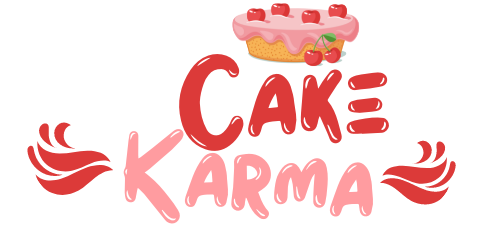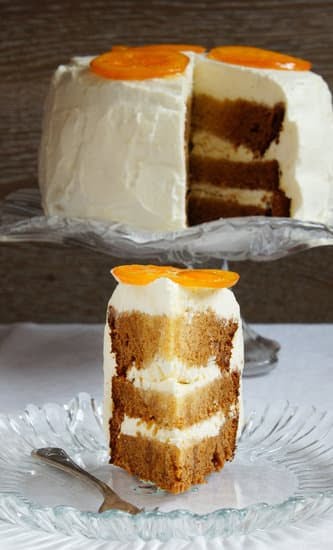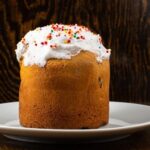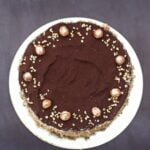Cake decorating is a truly artful skill, and those who excel in this craft are known as cake decorating professionals. These talented individuals possess the knowledge, experience, and creativity to transform a simple cake into a work of edible art. In this article, we will delve into the world of cake decorating professionals, exploring their role in the industry and the importance of their expertise.
Understanding the role of a cake decorating professional is essential to appreciating their value in the industry. These individuals play a crucial role in bringing joy to countless celebrations, from birthdays to weddings to anniversaries. They are responsible for creating visually stunning cakes that not only taste delicious but leave lasting memories for both clients and guests. Cake decorating professionals possess an eye for detail, impeccable precision, and the ability to turn sugar paste into exquisite designs.
Skilled and experienced professionals are vital in the cake decorating industry due to their ability to elevate events with their creations. They have spent years honing their craft, perfecting various techniques that allow them to create breathtaking cakes that cater specifically to their clients’ needs and preferences.
Their expertise extends beyond mere decoration; they understand flavor profiles, portion sizes, and how different ingredients interact with one another. The dedication these professionals devote to mastering their craft ensures that every client receives nothing short of perfection when it comes to their unique cake design.
In this article, we will explore the journey of becoming a cake decorating professional, delving into the necessary training and education required for aspiring individuals. We will also discuss specific techniques and styles used by these professionals along with tips and tricks for beginners looking to excel in this field. Furthermore, we will touch upon essential skills needed for success as a cake decorator while providing practical advice for developing those skills.
The Journey of Becoming a Cake Decorating Professional
Becoming a cake decorating professional is a rewarding journey that requires dedication and a passion for the craft. For those interested in pursuing a career in this field, it is crucial to understand the necessary training and education required to become a successful cake decorator.
- Training and Education: Cake decorating is both an art and a skill that can be learned through proper training and education. Aspiring professionals can start by enrolling in culinary arts programs or specialized courses that focus on cake decorating techniques. These programs provide invaluable knowledge and hands-on experience, allowing students to develop their skills and creativity.
- Steps to Take: Once the necessary training is obtained, there are several steps aspiring professionals can take to pursue a career in cake decorating. Building a strong portfolio by practicing and creating cakes for friends and family is an excellent way to showcase one’s talent. Networking with established professionals in the industry can also open doors for opportunities such as internships or apprenticeships.
- Success Stories: The journey of becoming a cake decorating professional often involves personal stories of triumph and perseverance. Many successful professionals have faced challenges, but their passion and determination have propelled them forward. Sharing these stories not only inspires aspiring decorators but also provides valuable insights into how others have overcome obstacles on their path to success.
Aspiring cake decorators should remember that becoming a professional requires continuous learning and improvement. While formal education lays the foundation, it is essential to stay up-to-date with the latest techniques, styles, equipment, tools, and trends in the industry. With hard work, dedication, and ongoing education, anyone with a love for cake decorating has the potential to build a successful career in this creative field.
Mastering the Different Techniques and Styles in Cake Decorating
Cake decorating professionals utilize a wide range of techniques and styles to create stunning and unique designs. Whether it’s piping, fondant work, or sculpting, mastering these different techniques is crucial for success in the field of cake decorating. This section will delve into the various methods and styles used by cake decorating professionals, providing tips and tricks for beginners as well as showcasing examples of exquisite cake designs.
One technique commonly used by cake decorators is piping. Piping involves using a pastry bag fitted with different tips to create intricate designs on cakes. From delicate borders to elaborate floral arrangements, piping allows decorators to add texture and dimension to their creations.
Beginners can start by practicing basic piping techniques such as dots, lines, and rosettes before moving on to more complex designs. It’s important for aspiring professionals to experiment with different types of tips and icing consistencies to achieve varying effects.
Another popular method in cake decorating is fondant work. Fondant is a smooth icing-like substance that can be rolled out and draped over cakes, providing a clean canvas for intricate designs. Cake decorators use fondant to create detailed decorations such as bows, flowers, or even sculpted figures.
Working with fondant requires patience and precision, as it can be challenging to achieve a flawless finish. Beginners should start by familiarizing themselves with the basics of working with fondant, such as rolling it out evenly and smoothing it onto a cake without creating air bubbles.
Apart from these techniques, there are various styles that cake decorators may choose to specialize in. Some decorators prefer a more traditional approach with elegant buttercream finishes and classic floral motifs, while others opt for modern designs that incorporate bold colors and unconventional shapes. The key is finding your own style and honing your skills accordingly. By studying the work of other professionals and experimenting with different techniques, aspiring decorators can develop their own unique signature style.
| Technique/Style | Description |
|---|---|
| Piping | Using a pastry bag with different tips to create intricate designs on cakes. |
| Fondant work | Using rolled-out fondant to create detailed decorations and smooth finishes. |
| Traditional Style | Elegant buttercream finishes with classic floral motifs. |
Mastering the different techniques and styles in cake decorating is an ongoing process that requires practice, creativity, and dedication. Aspiring professionals should not be afraid to explore new methods or borrow inspiration from various sources. By continuously refining their skills and pushing the boundaries of creativity, cake decorators can create breathtaking edible works of art that leave a lasting impression on clients and guests alike.
Essential Skills for Cake Decorating Professionals
Cake decorating is not just about creating beautiful designs on cakes; it requires a unique set of skills and abilities to be successful in this profession. In this section, we will explore the essential skills that every cake decorating professional should have.
Creativity
One of the most important skills for a cake decorator is creativity. A skilled decorator has the ability to envision unique designs and bring them to life on a cake. They can think outside the box and come up with innovative ideas that will wow their clients. To enhance creativity, professionals can engage in activities such as sketching, visiting art exhibitions, and experimenting with different decorating techniques.
Precision
Cake decorating requires great attention to detail and precision. From measuring ingredients accurately to piping intricate designs, every step needs to be done with precision. Even a minor mistake can affect the overall appearance of the cake. Cake decorators should practice steady hand movements and invest in high-quality tools to achieve precise results.
Patience
Patience is a virtue when it comes to cake decorating. It takes time and effort to achieve perfection in every design. Professionals must take their time while working on intricate details and wait patiently for layers of fondant or icing to set properly before moving on to the next step. Learning patience allows decorators to produce flawless creations without rushing through the process.
Developing these essential skills takes time and practice, but they are crucial for success in the cake decorating industry. Aspiring professionals can hone these skills by taking courses or participating in workshops specifically focused on cake decoration techniques. Continuous practice and determination will help decorators excel in their craft and create stunning cakes that leave a lasting impression on clients.
In the next section, we will discuss how these skills can be applied when building a successful cake decorating business, including marketing strategies and finding a niche in the market.
Building a Successful Cake Decorating Business
Starting and managing a cake decorating business can be both exciting and challenging. In this section, we will explore the key factors and strategies that can help aspiring cake decorators thrive in the industry. From navigating the initial stages of setting up a business to attracting and retaining clients, these insights will provide valuable guidance for those looking to establish themselves as successful professionals.
One of the first challenges in building a successful cake decorating business is finding a niche in the market. With the growing popularity of custom cakes, it is important for decorators to identify their unique selling point.
This could be specializing in specific theme cakes such as weddings or birthdays, or offering a particular style or technique that sets them apart from competitors. By focusing on a niche, decorators can establish themselves as experts in that area and attract clients who seek specialized services.
Marketing strategies play a crucial role in attracting clients to a cake decorating business. Social media platforms have become powerful tools for showcasing cake designs and reaching potential customers. Having an active presence on platforms like Instagram, Facebook, and Pinterest can help decorators gain visibility and connect with their target audience. Additionally, collaborating with other wedding vendors or participating in local events can also be effective ways to promote the business.
Once clients are attracted, providing exceptional services is essential for building long-term relationships. Customer satisfaction should always be prioritized by delivering high-quality products within agreed-upon timelines. Paying attention to detail and ensuring each cake reflects the client’s vision is crucial for exceeding their expectations. Offering personalized consultations and providing options for customization can further enhance the customer experience.
| Key Factors | Strategies |
|---|---|
| Finding a niche in the market | – Specializing in specific themes or styles
|
| Marketing strategies | – Utilizing social media platforms for showcasing cake designs
|
| Exceptional customer service | – Prioritizing customer satisfaction
|
Tools and Equipment Every Cake Decorating Professional Should Have
A cake decorating professional relies heavily on the tools and equipment they use to create beautiful and intricate designs. Having the right tools not only enhances their creativity but also ensures precision and efficiency in their work. Here are some essential tools and equipment that every cake decorating professional should have:
Cake Pans
Cake pans come in various shapes and sizes, allowing professionals to create different designs and tiered cakes. It is crucial to invest in high-quality pans that distribute heat evenly for consistent baking.
Decorating Bags and Tips
Decorating bags are used to pipe frosting or icing onto the cake, while tips determine the pattern and design of the decorations. Professionals should have a variety of tips, including round tips for creating borders, star tips for rosettes, and leaf tips for foliage designs.
Offset Spatulas
Offset spatulas are essential for spreading frosting evenly on the cake’s surface or lifting delicate decorations without damaging them. Having spatulas in different sizes ensures versatility in handling cakes of different dimensions.
Turntable
A turntable is a rotating platform that allows decorators to easily access all sides of a cake while working on it. It provides smooth movement, making it easier to apply even pressure when frosting or decorating.
Fondant Tools
Fondant is a popular choice for creating intricate designs on cakes. Fondant tools, such as rolling pins, cutters, embossers, and modeling tools, help professionals work with fondant more easily and achieve precise details.
Airbrush Kit
An airbrush kit enables professionals to add color gradients, shading effects, and intricate patterns to their cakes effortlessly. It allows for more professional-looking finishes compared to traditional hand painting techniques.
It is important for cake decorating professionals to invest in high-quality tools and equipment that will last long and withstand frequent use. Researching reputable brands, reading reviews, and seeking recommendations from experienced decorators can help in making the right choices when purchasing these essential items. Ultimately, having the proper tools and equipment is crucial for any cake decorating professional to create stunning works of edible art.
Dealing with Common Challenges in Cake Decorating
Addressing Common Obstacles
Cake decorating, like any other profession, comes with its fair share of challenges. From time constraints to tricky client requests, cake decorators often face obstacles that can test their skills and patience. One common challenge is working in high-pressure situations, such as tight deadlines or demanding clients. This can lead to feeling overwhelmed or experiencing creative blocks. It is important for cake decorating professionals to have strategies in place to address these challenges effectively.
Solutions and Workarounds
When facing a tight deadline, it is crucial for cake decorators to manage their time efficiently. Creating a detailed schedule or checklist can help ensure all tasks are completed in a timely manner. This may involve breaking down the design process into smaller steps and prioritizing tasks based on their level of importance and complexity.
Dealing with demanding clients requires effective communication and problem-solving skills. Active listening and understanding the client’s vision will help avoid misunderstandings or disappointment. Offering alternative solutions or compromises when faced with unrealistic requests can also be beneficial.
For creative blocks, cake decorators can seek inspiration from various sources such as books, magazines, or online platforms dedicated to cake decorating. Taking breaks and engaging in activities unrelated to cake decorating can also help refresh the mind and spark creativity.
Personal Anecdotes and Success Stories
Many experienced cake decorating professionals have encountered obstacles throughout their careers but have found ways to overcome them successfully. For example, one professional shared her experience of having a last-minute request for an intricate wedding cake with limited time available. She utilized her organizational skills and opted for pre-made decorations while focusing on delivering exceptional flavor and texture in the cake itself.
Another decorator explained how she managed difficult client demands by establishing clear boundaries regarding what could be achieved within the given timeframe and budget. By offering alternative suggestions that still aligned with the client’s vision, she was able to create stunning cakes while maintaining a positive client relationship.
These real-life anecdotes and success stories serve as inspiration for aspiring cake decorators, reminding them that challenges can be overcome with creativity, problem-solving skills, and resourcefulness.
Continuing Education and Professional Development in Cake Decorating
In the ever-evolving world of cake decorating, it is essential for professionals to continually educate themselves and invest in their professional development. The art of cake decorating is constantly evolving, with new techniques, styles, and trends emerging regularly. Therefore, staying updated with the latest information and skills is crucial for success in this industry.
Cake decorators should prioritize attending workshops and training sessions to enhance their knowledge and refine their craft. These opportunities provide a platform for professionals to learn from industry experts, gain hands-on experience, and explore innovative techniques. By participating in these educational programs, cake decorators can expand their skill set and stay ahead of the competition.
Certifications are also valuable in demonstrating credibility and expertise as a cake decorating professional. Acquiring relevant certifications showcases dedication to the craft and provides reassurance to clients that they are working with a skilled individual. Additionally, being part of professional organizations or associations specific to cake decorating offers networking opportunities, access to valuable resources, and ongoing education through seminars and conferences.
To truly excel in this business, it is crucial for cake decorators to keep up with the latest trends and techniques. They should regularly research and experiment with new ideas, materials, colors, and designs. Following influential figures in the industry on social media platforms can provide inspiration and insights into the newest developments. This commitment to continuous learning ensures that professionals are able to offer unique creations that cater to the demands of their clients.
In conclusion, continuing education and professional development play an integral role in the success of a cake decorating professional. Acquiring new knowledge through workshops and certifications not only enhances skills but also demonstrates commitment to excellence. Staying current with industry trends helps cake decorators deliver fresh ideas while offering exceptional services to clients. By investing time and effort into ongoing education, cake decorators position themselves at the forefront of this dynamic field where creativity knows no bounds.
Frequently Asked Questions
What is a professional cake decorator called?
A professional cake decorator is commonly known as a pastry chef or a cake designer. These individuals possess the knowledge and expertise required to create visually appealing and delicious cakes for various occasions. They are skilled in using different techniques, such as piping, fondant work, and sugarcraft, to transform a plain cake into an exquisite masterpiece.
How do you decorate a cake professionally?
Decorating a cake professionally involves several key steps. First, the cake decorator starts by preparing the cake itself, ensuring it is baked perfectly and has a smooth surface for decorating. They then whip up various types of frosting or icing to apply onto the cake. The decorator might choose to use buttercream or fondant to achieve different looks and textures.
Once the base is set, they begin applying various decorative elements like flowers, patterns, or figures using piping bags, edible paints, molds, stencils or other tools depending on their preferred techniques. Attention to detail is crucial in achieving a flawless finish on the cake design. Lastly, a professional cake decorator often adds final touches such as dusting with edible glitters or adding personalized messages to complete the creation.
What is the difference between a cake artist and a cake decorator?
While the terms “cake artist” and “cake decorator” are sometimes used interchangeably, there is a subtle difference between the two professions. A cake artist typically focuses more on creating intricate designs that showcase artistic skills beyond traditional baking techniques. They may specialize in hand-painted designs or sculptural elements that elevate the appearance of the cake into an art form (e.g., replicating famous landmarks).
On the other hand, a cake decorator primarily concentrates on using classic decorating techniques like piping frosting or applying fondant decorations. While both professionals possess exceptional skills in creating visually stunning cakes at high standards of quality, it can be said that a cake artist explores creativity through unique design concepts while a decorator often follows established decorating methods tailored to clients’ preferences but with less focus on artistic innovation.

Welcome to our cake decorating blog! My name is Destiny Flores, and I am the proud owner of a cake decorating business named Cake Karma. Our mission is to provide delicious, beautiful cakes for all occasions. We specialize in creating custom cakes that are tailored specifically to each customer’s individual needs and tastes.





